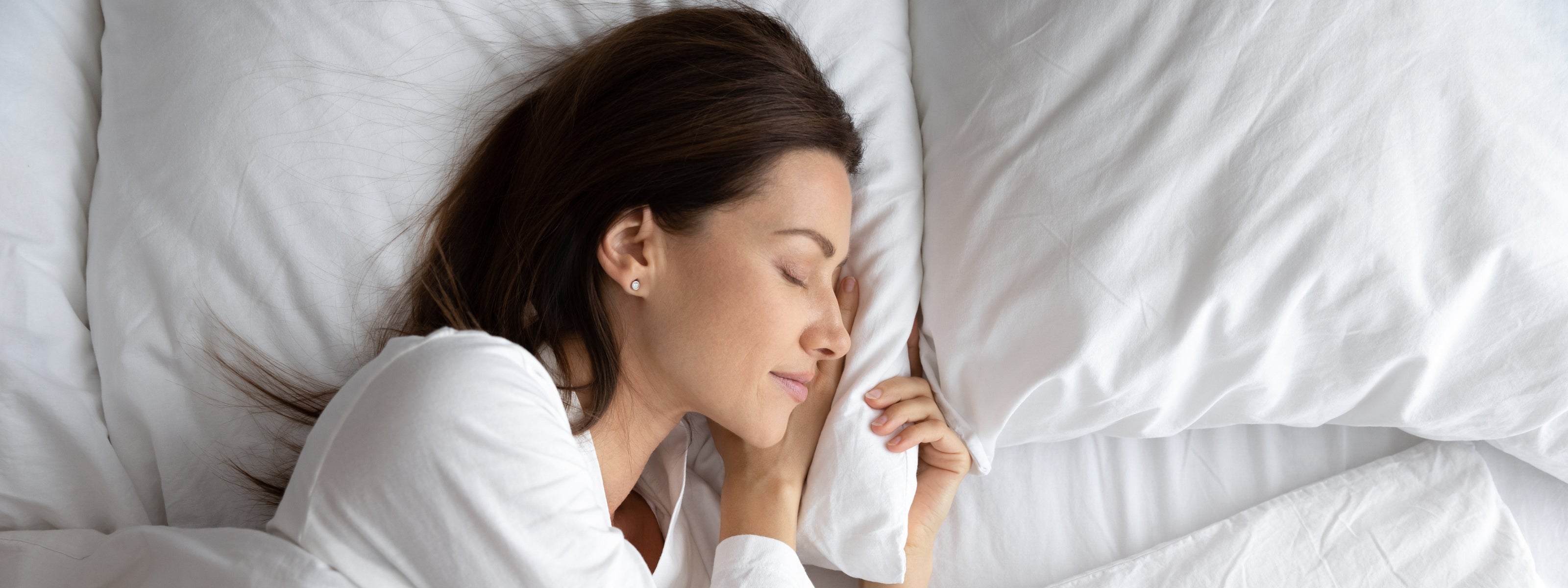A proper night's rest is essential to good health, but many struggle to drop off at night, or wake frequently. Nutritional Therapist, Sarah Brereton shares her tips to becoming a successful sleeper.
If you’re having trouble getting to sleep or staying asleep every night, it can become pretty frustrating. It can also impact other aspects of your life and health, including your mood, energy, hormonal health and skin.
Stress and lack of sleep can form a vicious cycle. The less sleep you have, the less likely you will be able to cope physically and emotionally with daily demands and the more stressed this will make you feel. As we stress, cortisol levels increase, prolonged stress can lead to increased insomnia and frequently waking up during the sleep cycle. Stress, hormone imbalance and eating late at night can all contribute. Good quality sleep has been shown to strengthen the immune system, maintain healthy skin and help keep weight regular.

Tips for creating good sleep hygiene
> Avoiding stimulants such as caffeine and nicotine close to bedtime. And when it comes to alcohol, moderation is key. Alcohol close to bedtime can disrupt sleep in the second half of the night as the body begins to process the alcohol.
> Steering clear of food that can be disruptive right before sleep. Heavy or rich foods, fatty or fried meals, spicy dishes, citrus fruits, and carbonated drinks can trigger indigestion for some people.
> Exercising to promote good quality sleep. As little as 10 minutes of aerobic exercise, such as walking or cycling during the day, can drastically improve night time sleep quality.
> Establishing a regular relaxing bedtime routine. This could include taking a warm shower or bath, reading a book. When possible, try to avoid emotionally upsetting movies and devices with blue light before attempting to sleep.
> Making sure that the sleep environment is pleasant and cool. Mattress and pillows should be comfortable, in summer switch to a lower tog duvet. Consider using blackout curtains, eye shades, ear plugs, "white noise" machines or humidifiers.

There are foods which can help us sleep better. They include tryptophan, an essential amino acid which helps make melatonin and serotonin. Melatonin helps regulate the sleep-wake cycle. Try and include one of these tryptophan rich foods, such as almonds, turkey, oily fish, bananas, kiwis, oatmeal, milk, cottage cheese, eggs, dates, lettuce with some carbohydrates to increase its absorption through the blood-brain barrier.
Chamomile tea contains antioxidants such as apigenin that may promote sleepiness and has mild sedative properties, drinking chamomile tea before bedtime has been shown to improve overall sleep quality.
Consider trying our new Irish Botanica® Seésta capsules which are designed by medical herbalists to help maintain a healthy sleep pattern naturally. It contains a unique and specially formulated combination of KSM-66® Ashwagandha, Hops Flower, Chamomile, Magnesium and Chinese Herbs to aid sleep. It can also soothe mild stress and safe daytime use if needed.




